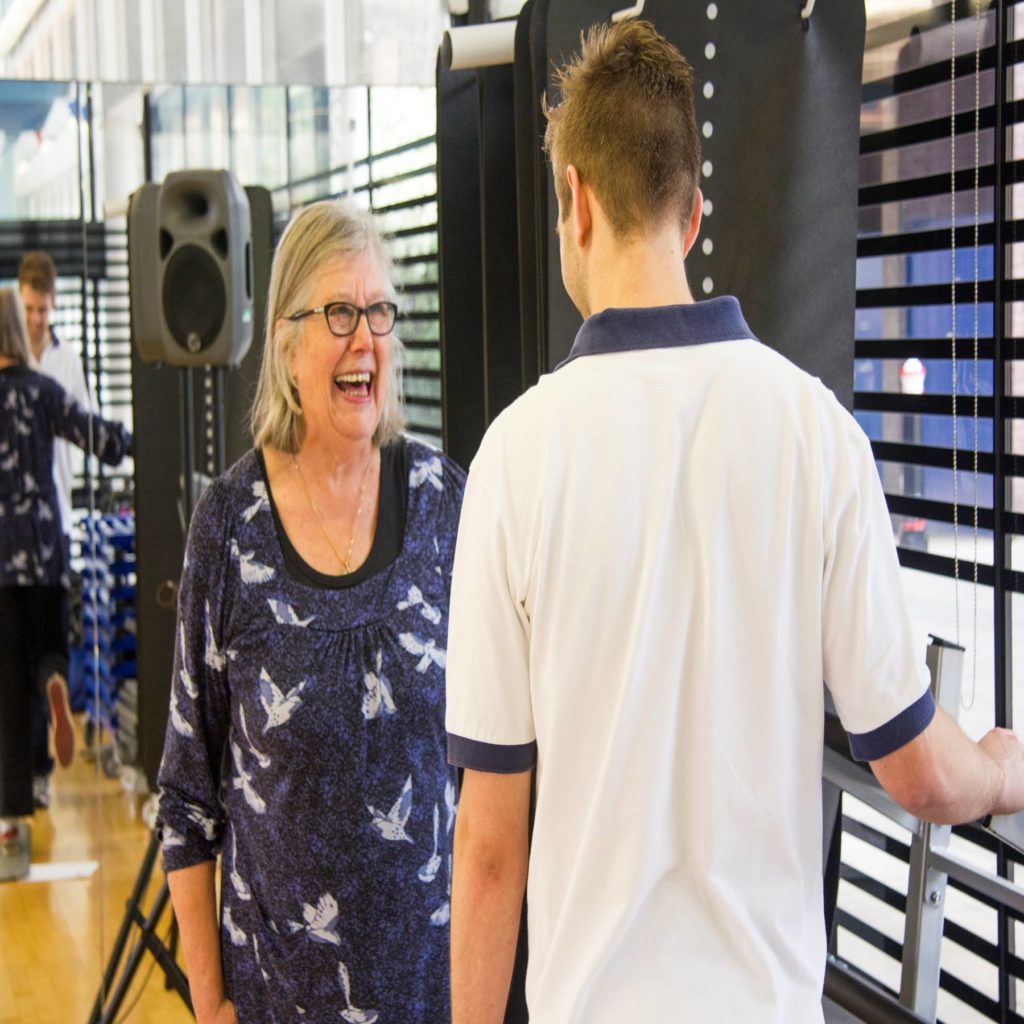We're here to help
If you have any question or would like more information on Joint Pain Advice. Please contact us.
Get in touch
The Joint Pain Advice intervention has been implemented over several years, in over 20 locations across England, and through it over 1400 people have learnt how to self-manage their joint pain. Professor Hurley and the MSK team achieved four publications, as well as recognition by the National Institute for Health and Care Excellence (NICE) and the National Innovation Accelerator for this work. Grants were awarded by Department of Work and Pensions and Health Foundation (Q Improvement Lab).
Recognised by NICE as an excellent example of how NICE guidance and standards are being put into practice, Joint Pain Advice (JPA) model of care is a safe and cost effective alternative to GP consultations. Involving a series of consultations, Advisors work collaboratively with people with hip and/or knee osteoarthritis and/or back pain, focusing on supporting self-management.
Using behavioural change techniques Advisors work with individuals to discuss their lifestyle, challenges and goals, and begin to alter people’s health beliefs about joint pain and impact on healthy behaviour and lifestyles. They jointly develop an action plan which includes tailored advice and support based on NICE guidelines, such as:
Impact
The outcomes from JPA pilot and service improvement studies, implemented across a variety of settings and provided by a range of professionals, were collated to summarise the impact of JPA.
Our report, which is coming soon, concluded that:
“I was struggling with my journey to work and was taking sick leave. I was able to continue working.”
“I was given advice and exercises that have transformed my mobility…I feel mentally so positive.”
“The advisor worked with me, she wasn’t lecturing me, she was asking questions ‘what do you think you can do’ and by the time I left her I felt very empowered, that I had to change.”
You can find more information about JPA studies and evaluations below. Evaluation shows improvements in clinical outcomes for people who have access to JPA; for example, reduction in pain, increase in function and ability to carry out activities of daily living, improvements in mental wellbeing as well as fewer GP consultations and reduction in referrals to diagnostics.
Lewisham: Our feasibility study of 500 people delivered by physiotherapists in GP settings. A Social Return on Investment evaluation found a return of up to £4.00 for every £1.00 invested. Read our evaluation.
Greenwich: Delivered by Health Trainers in community settings, in partnership with Charlton Athletic Community Trust, Greenwich Health Trainers and Royal London Borough of Greenwich Healthy Living Service. Read our final report and case study.
Shropshire: This JPA-based programme was delivered by Wellbeing Advisors working across GP practices and community settings. Read our final report.
JPA in the workplace: A feasibility study of almost 500 employees across workplaces in London and Cornwall, in partnership with the Bone and Joint Research Group (Cornwall Royal Hospitals NHS Trust), funded by the Work and Health Challenge Fund. Read our papers that was published in Musculoskeletal Care. (Delivering NICE Joint Pain Advice and Participant Experience).
More information about JPA as an intervention to support musculoskeletal health in the workplace can be found here.
JPA in mental health settings: This project explored the effectiveness of JPA provided within mental health services to better understand whether the JPA model can support people with mental health conditions, who are also experiencing chronic hip, knee and/or back pain, to self-manage their condition more effectively. Developed with Q Improvement Lab and supported by The Health Foundation. Our final report is coming soon.
If you have any question or would like more information on Joint Pain Advice. Please contact us.
Get in touch